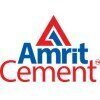Filter interviews by
Nina Percept Interview Questions and Answers
9 Interview questions
We pitch a comprehensive basement waterproofing system that includes interior and exterior solutions to keep basements dry and protected.
Highlight the benefits of a dry basement, such as preventing mold growth and protecting valuable belongings
Explain the different components of the waterproofing system, such as sump pumps, drainage systems, and vapor barriers
Offer a free inspection and estimate to assess the spec...
The volume of concrete can be measured using various methods such as the displacement method, the geometric method, or the unit weight method.
Displacement method: In this method, the volume of concrete is determined by measuring the change in water level when the concrete is submerged in a container.
Geometric method: This method involves measuring the dimensions of the concrete element (length, width, and height) ...
Bearing capacity of soil refers to its ability to support the load of a structure without excessive settlement or failure.
Bearing capacity is a crucial factor in determining the type and size of foundations for structures.
It depends on various factors such as soil type, moisture content, compaction, and depth.
Different types of soil have different bearing capacities. For example, clay has a lower bearing capacity ...
The process of covering concrete placed on the exposed top of an external wall involves several steps.
Clean the surface of the concrete to remove any dirt, dust, or debris.
Apply a primer or bonding agent to enhance the adhesion of the covering material.
Choose a suitable covering material such as paint, plaster, tiles, or cladding.
Prepare the covering material according to the manufacturer's instructions.
Apply the ...
The soundness of cement refers to its ability to retain its volume after setting.
Soundness is an important property of cement that ensures its durability and long-term stability.
It is measured by conducting the Le Chatelier test or the autoclave test.
A sound cement will not undergo significant expansion or contraction after setting.
Unsound cement may lead to cracks, reduced strength, and structural instability.
For...
Waterproofing is the process of making a structure or material resistant to the penetration of water.
It involves the application of various techniques and materials to prevent water from entering or damaging a structure.
Common waterproofing methods include the use of waterproof membranes, sealants, and coatings.
Waterproofing is essential in construction to protect buildings, basements, roofs, and other structures ...
There are various waterproofing chemicals available for civil site engineering.
Polyurethane-based waterproofing chemicals
Acrylic-based waterproofing chemicals
Bitumen-based waterproofing chemicals
Cementitious waterproofing chemicals
Silicone-based waterproofing chemicals
Epoxy-based waterproofing chemicals
Grouting is a process of injecting a fluid material into the ground or structures to fill voids, strengthen soil, or provide support.
Grouting is commonly used in construction and civil engineering projects.
It is used to improve the stability and strength of soil or rock formations.
Grouting can be done using various materials such as cement, epoxy, or chemical grouts.
It is used to fill gaps or voids in structures l...
I want to switch to a more challenging and rewarding role as an Assistant Sales Manager.
Seeking new opportunities for growth and development
Looking to utilize my sales skills in a leadership role
Interested in taking on more responsibilities and contributing to the success of a sales team
Nina Percept Interview Experiences
7 interviews found
(2 Questions)
- Q1. How is your excel?
- Ans.
Proficient in Excel with experience in creating complex formulas, pivot tables, and data analysis.
Experienced in creating and managing spreadsheets for sales data
Skilled in using functions and formulas to automate tasks
Familiar with pivot tables for data analysis and reporting
Comfortable working with large datasets and organizing information efficiently
- Q2. What product do you pitch in basement waterproofing
- Ans.
We pitch a comprehensive basement waterproofing system that includes interior and exterior solutions to keep basements dry and protected.
Highlight the benefits of a dry basement, such as preventing mold growth and protecting valuable belongings
Explain the different components of the waterproofing system, such as sump pumps, drainage systems, and vapor barriers
Offer a free inspection and estimate to assess the specific ...
(2 Questions)
- Q1. What do you want to switch
- Ans.
I want to switch to a more challenging and rewarding role as an Assistant Sales Manager.
Seeking new opportunities for growth and development
Looking to utilize my sales skills in a leadership role
Interested in taking on more responsibilities and contributing to the success of a sales team
- Q2. What is your notice period
- Ans.
My notice period is one month.
My notice period is one month
I am required to give one month's notice before leaving my current position
I need to provide one month's notice to my current employer
(2 Questions)
- Q1. What is your expections
- Q2. Where do see yourself in next 5 years
- Ans.
In the next 5 years, I see myself excelling in my role as an Assistant Sales Manager, leading a team to achieve ambitious sales targets and contributing significantly to the growth of the company.
Continuing to develop my leadership skills through training and mentorship programs
Taking on more responsibilities within the sales department, such as overseeing key accounts or implementing new sales strategies
Working toward...
Interview Preparation Tips
I applied via Naukri.com and was interviewed before Oct 2021. There were 4 interview rounds.

Mail draft
Material consumption
Sums.
(1 Question)
- Q1. About Indian waterproofing system Calculations of Material as per required area How to draft mail. Excel Billing Material reconciliation
(1 Question)
- Q1. Introduction and salary negotiations
I applied via Other and was interviewed in May 2021. There was 1 interview round.
Interview Questionnaire
8 Questions
- Q1. 1-What is waterproofing?
- Ans.
Waterproofing is the process of making a structure or material resistant to the penetration of water.
It involves the application of various techniques and materials to prevent water from entering or damaging a structure.
Common waterproofing methods include the use of waterproof membranes, sealants, and coatings.
Waterproofing is essential in construction to protect buildings, basements, roofs, and other structures from ...
- Q2. What are waterproofing chemicals that can we use ?
- Ans.
There are various waterproofing chemicals available for civil site engineering.
Polyurethane-based waterproofing chemicals
Acrylic-based waterproofing chemicals
Bitumen-based waterproofing chemicals
Cementitious waterproofing chemicals
Silicone-based waterproofing chemicals
Epoxy-based waterproofing chemicals
- Q3. The waterproofing chemicals are - Dr.Fixit,Pidilite
- Q4. How would you describe the soundness of cement?
- Ans.
The soundness of cement refers to its ability to retain its volume after setting.
Soundness is an important property of cement that ensures its durability and long-term stability.
It is measured by conducting the Le Chatelier test or the autoclave test.
A sound cement will not undergo significant expansion or contraction after setting.
Unsound cement may lead to cracks, reduced strength, and structural instability.
For exam...
- Q5. What is the process of covering of concrete placed on the exposed top of an external wall ?
- Ans.
The process of covering concrete placed on the exposed top of an external wall involves several steps.
Clean the surface of the concrete to remove any dirt, dust, or debris.
Apply a primer or bonding agent to enhance the adhesion of the covering material.
Choose a suitable covering material such as paint, plaster, tiles, or cladding.
Prepare the covering material according to the manufacturer's instructions.
Apply the cover...
- Q6. What is a bearing capacity of soil?
- Ans.
Bearing capacity of soil refers to its ability to support the load of a structure without excessive settlement or failure.
Bearing capacity is a crucial factor in determining the type and size of foundations for structures.
It depends on various factors such as soil type, moisture content, compaction, and depth.
Different types of soil have different bearing capacities. For example, clay has a lower bearing capacity compa...
- Q7. What is grouting
- Ans.
Grouting is a process of injecting a fluid material into the ground or structures to fill voids, strengthen soil, or provide support.
Grouting is commonly used in construction and civil engineering projects.
It is used to improve the stability and strength of soil or rock formations.
Grouting can be done using various materials such as cement, epoxy, or chemical grouts.
It is used to fill gaps or voids in structures like t...
- Q8. How do you measure the volume of concrete?
- Ans.
The volume of concrete can be measured using various methods such as the displacement method, the geometric method, or the unit weight method.
Displacement method: In this method, the volume of concrete is determined by measuring the change in water level when the concrete is submerged in a container.
Geometric method: This method involves measuring the dimensions of the concrete element (length, width, and height) and c...
Interview Preparation Tips
Willingness to work and flexibility
Leadership skills
Ability and willingness to learn new things
Contributions to the organizations in which you have worked or volunteered
Creativity in solving

(1 Question)
- Q1. Personal information, past experience
Interview Preparation Tips

(1 Question)
- Q1. Personal information, past experience
Interview Preparation Tips
I appeared for an interview in Oct 2021.
Interview Questionnaire
1 Question
- Q1. Nothing and waste of time to join such type of foolish company as they required road side labor to work for there company not a technical sound person
Interview Preparation Tips
I applied via Referral and was interviewed in Feb 2021. There were 3 interview rounds.
Interview Questionnaire
4 Questions
- Q1. Tell me about yourself?
- Q2. As you did jobs in client base company,our company is contractual, so how will you deliver your role in our comp any?
- Q3. How will you manage multi projects?
- Ans.
I prioritize tasks, utilize project management tools, and maintain clear communication to effectively manage multiple projects.
Prioritization: I assess project deadlines and importance, focusing on high-impact tasks first. For example, I use the Eisenhower Matrix.
Project Management Tools: I leverage tools like Trello or Asana to track progress and deadlines, ensuring nothing falls through the cracks.
Regular Check-ins: ...
- Q4. Tell us about your family background?
Interview Preparation Tips
1) communition skills
2) confidence level
3) Basic knowledge
4) loyalty
Top trending discussions






Interview questions from similar companies

Interview Questionnaire
1 Question
- Q1. Tell about your self

Interview Questionnaire
2 Questions
- Q1. HR head asked about job history and present role
- Q2. After screening resume plant head and Department head took telephonic interview then selection done.
Interview Preparation Tips

I applied via Recruitment Consultant and was interviewed before Jan 2021. There were 3 interview rounds.
Interview Questionnaire
1 Question
- Q1. Asked about packers vfds mills,weighing systems Fire Alarm systems
Interview Preparation Tips
Nina Percept Interview FAQs
Tell us how to improve this page.
Nina Percept Interviews By Designations
- Nina Percept Territory Sales Incharge Interview Questions
- Nina Percept AGM (Engineering) Interview Questions
- Nina Percept Assistant Sales Manager Interview Questions
- Nina Percept Assistant General Manager Interview Questions
- Nina Percept Civil Site Engineer Interview Questions
- Nina Percept Junior Project Engineer Interview Questions
Interview Questions for Popular Designations
- Software Engineer Interview Questions
- Intern Interview Questions
- Software Developer Interview Questions
- Senior Associate Interview Questions
- Sales Executive Interview Questions
- Senior Software Engineer Interview Questions
- System Engineer Interview Questions
- Data Analyst Interview Questions
- Show more
Overall Interview Experience Rating
based on 3 interview experiences
Difficulty level
Duration
Interview Questions from Similar Companies
Nina Percept Reviews and Ratings
based on 131 reviews
Rating in categories
|
Project Engineer
94
salaries
| ₹2.3 L/yr - ₹6.2 L/yr |
|
Project Manager
18
salaries
| ₹5.6 L/yr - ₹11.7 L/yr |
|
Safety Officer
17
salaries
| ₹2.8 L/yr - ₹4.3 L/yr |
|
Cluster Manager
15
salaries
| ₹8.3 L/yr - ₹17 L/yr |
|
Senior Project Engineer
11
salaries
| ₹3.8 L/yr - ₹7.8 L/yr |

Amrit Cement

Sanghi Industries

My Home Industries

RAK Ceramics
- Home >
- Interviews >
- Nina Percept Interview Questions












